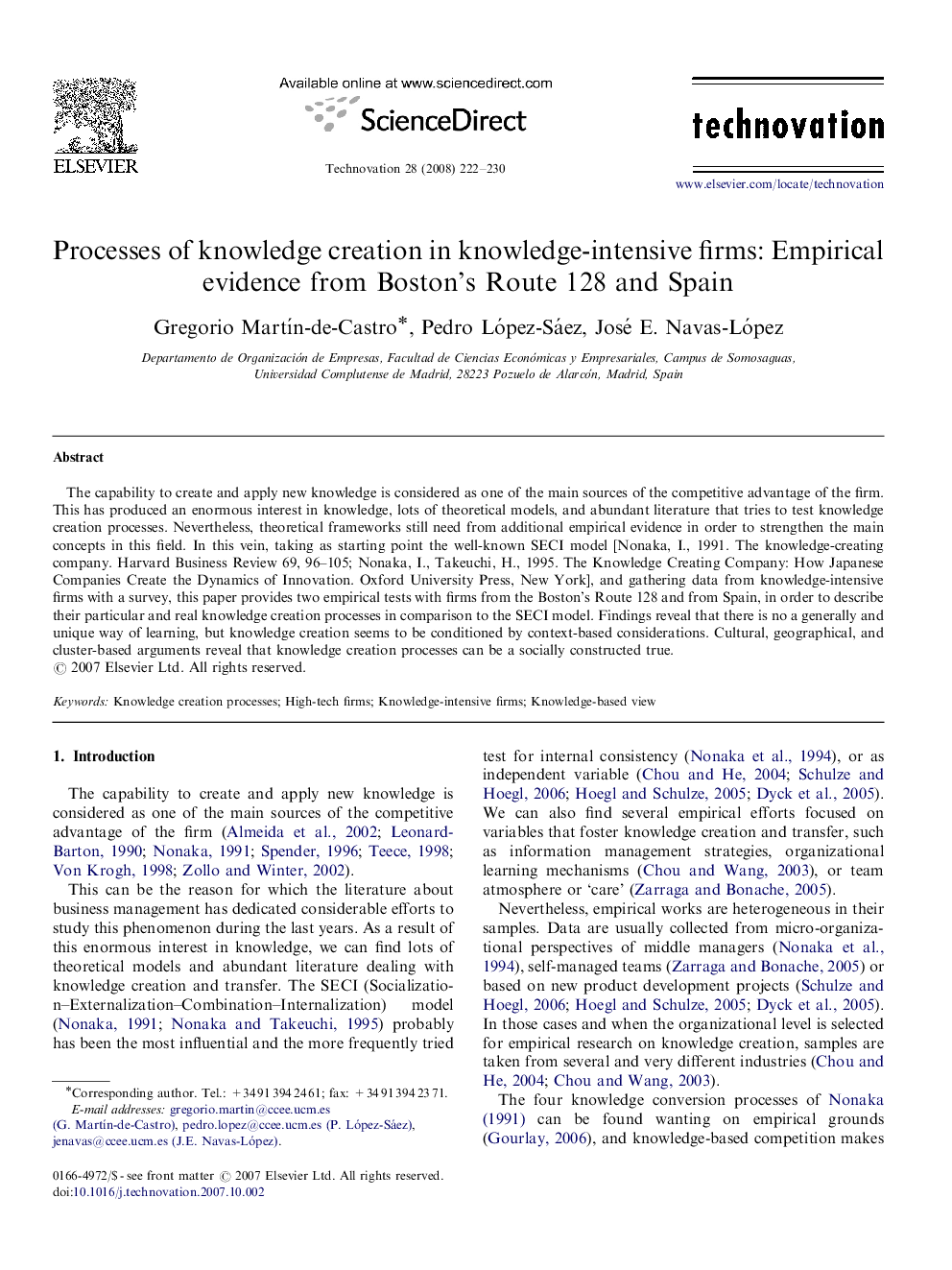| Article ID | Journal | Published Year | Pages | File Type |
|---|---|---|---|---|
| 1022804 | Technovation | 2008 | 9 Pages |
The capability to create and apply new knowledge is considered as one of the main sources of the competitive advantage of the firm. This has produced an enormous interest in knowledge, lots of theoretical models, and abundant literature that tries to test knowledge creation processes. Nevertheless, theoretical frameworks still need from additional empirical evidence in order to strengthen the main concepts in this field. In this vein, taking as starting point the well-known SECI model [Nonaka, I., 1991. The knowledge-creating company. Harvard Business Review 69, 96–105; Nonaka, I., Takeuchi, H., 1995. The Knowledge Creating Company: How Japanese Companies Create the Dynamics of Innovation. Oxford University Press, New York], and gathering data from knowledge-intensive firms with a survey, this paper provides two empirical tests with firms from the Boston's Route 128 and from Spain, in order to describe their particular and real knowledge creation processes in comparison to the SECI model. Findings reveal that there is no a generally and unique way of learning, but knowledge creation seems to be conditioned by context-based considerations. Cultural, geographical, and cluster-based arguments reveal that knowledge creation processes can be a socially constructed true.
